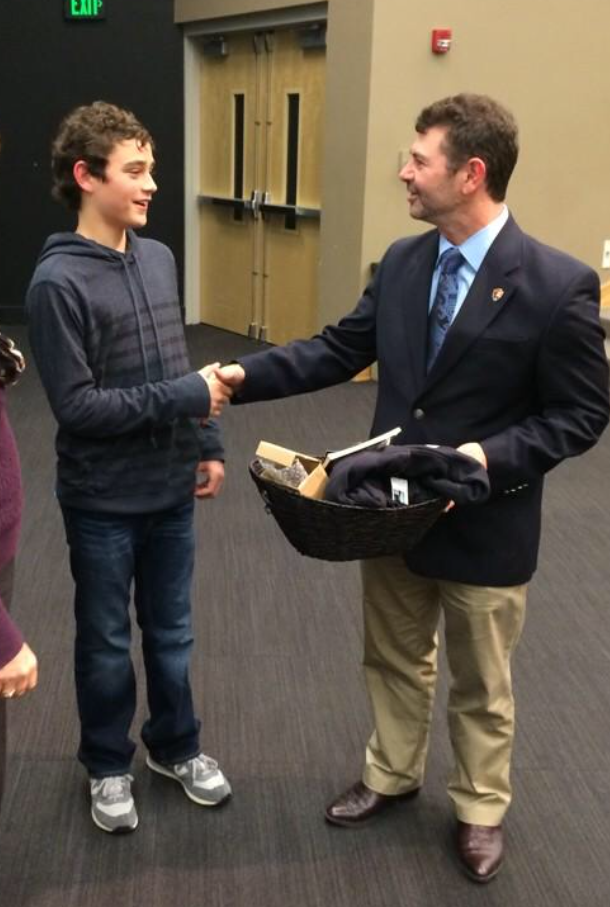
A.J. Edwards masters the concept of “show don’t tell” in his latest film about Abraham Lincoln’s younger years in Spencer County, Indiana.
Colored with black and white images of rustling leaves, billowing wheat fields and crackling streams, “The Better Angels” depicts the boy Lincoln as he struggles to cope with the loss of his mother and adjust to the new additions who follow.
Stunning visuals and eloquent acting pull the film along with a melancholic ease, but induce dozes now and then when the storyline becomes lost within itself.
However, the lack of details proved to be a refreshing change from the standard biopic.
Braydon Denney starred as the youthful former president in his first gig as an actor.
The boy’s southern innocence and pensive eyes played well into his dialogue-light scenes that focused on capturing daily life in the rugged terrain as opposed to showering the facts.
“The Better Angels” showed at 7:30 p.m. Wednesday in USI’s Forum I – two nights before the Los Angeles and New York City premieres.
Denney, a Kentucky native, attended the showing and spoke afterward about his chance auditioning process.
Despite the boy’s neophyte status as an actor, the rest of the cast consisted of some surprisingly well-known names.
Jason Clarke (“Zero Dark Thirty,” and “Dawn of the Planet of the Apes”) played Lincoln’s hardened father who, as a working man, struggles to relate to his child prodigy.
Sarah Lincoln, the stepmother, played by Diane Kruger (“Troy,” “Inglorious Bastards”), enters honest Abe’s life at a shaky time with a new role as mother and an unexpected role as mediator.
She and his birth mother Nancy (Brit Marling, “Arbitrage”) are the better angels who guide Lincoln to his path of knowledge.
Marling, a lesser-known actress than Clarke and Kruger, sparkles as she tries to inspire her boy, who she knows is destined for greatness, and battles an illness.
Lincoln receives his final push toward success in the film by schoolteacher Mr. Crawford (Wes Bentley, “American Beauty,” “The Hunger Games”).
The film frequently uses low, shaky camera angles and cuts quickly from shot to shot, creating a unique movie going experience that plops viewers into Southern Indiana’s early 1800’s deciduous foliage.
Even though “The Better Angels” uses artistry to coast through lackluster writing, its ability to evoke eye-wetting emotion through entrancing imagery makes for a memorable experience and shows us a side of Lincoln we don’t contemplate enough.


